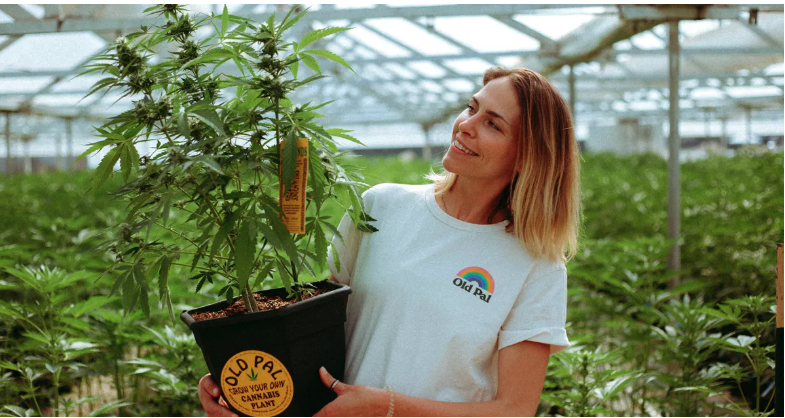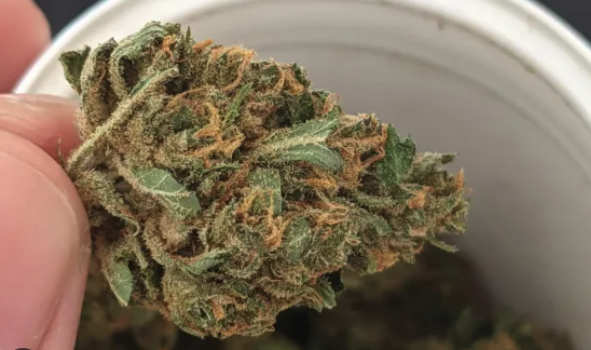What You Need to Know About Cash Flow Management
NEW YORK- Every CFO and entrepreneur in Cannabis and Psychedelics needs to know that efficient cash flow management is essential in the cannabis industry, where companies face specific financial challenges.
WELCOME Back to this fresh series of articles from Growise CPAs in partnership with Highly Capitalized Network designed to help prepare entrepreneurs in cannabis and psychedelics with the financial concepts necessary for success, and for others, this acts as a fresh perspective on the various financial frameworks they or their financial departments are used to using every day in these new and dynamic emerging markets. Growise CPAs have been operating in these markets for many years and share their insights here in this article below. This is the second in the series of ten articles.
Cash flow refers to the movement of money in and out of a business, and maintaining a positive cash flow is vital to operational sustainability. Given the cash-intensive nature of the cannabis sector and limited access to traditional banking, CFOs must implement robust strategies to navigate these complexities.
Understanding Cash Flow Dynamics in Cannabis
Cash flow dynamics in the cannabis industry are influenced by several factors:
1.Limited Banking Access
Due to federal regulations, many banks are reluctant to serve cannabis businesses, forcing them to operate primarily in cash. This reliance on cash increases vulnerability to theft and mismanagement, and complicates financial oversight. Without access to traditional banking services, cannabis companies often struggle to manage payroll, pay suppliers, and secure loans.
2. High Operational Costs
Cannabis businesses often incur significant costs related to regulatory compliance, cultivation, production, and distribution. These expenses can quickly deplete cash reserves. For example, compliance with state regulations can involve significant fees for licensing, security measures, and ongoing operational adjustments to meet evolving legal standards.

3.Market Volatility
The cannabis market is susceptible to fluctuations in demand and pricing, resulting in unpredictable cash inflows. Seasonal trends can affect sales; for example, certain products may experience increased demand during holidays or special events. This volatility can make it challenging for CFOs to plan effectively and allocate resources wisely.
Implementing Effective Cash Flow Management Strategies
To address these challenges, CFOs should develop effective cash flow management strategies tailored to the cannabis industry:
- Establish Clear Budgets
Developing detailed budgets that account for both fixed and variable expenses is essential. A well-structured budget allows companies to allocate resources efficiently while forecasting potential revenue streams. Regularly reviewing and adjusting budgets based on actual performance helps maintain financial discipline.
- Prioritize Expense Tracking
The use of accounting software is crucial for diligent tracking of expenses. This practice allows CFOs to identify unnecessary costs and provides insight into areas where savings can be achieved. By closely monitoring expenditures, companies can make informed decisions on resource allocation and operational adjustments.
- Implement Cash Flow Forecasting
Cash flow forecasting models that predict future cash inflows and outflows are key tools for anticipating cash crunches. Understanding expected cash movements allows CFOs to make proactive decisions on operational adjustments or capital investments. Regularly updating forecasts based on market conditions ensures that companies remain agile in their financial planning.
- Negotiate Payment Terms
Establishing favorable payment terms with suppliers is essential for better cash flow management. Negotiating extended payment periods or early payment discounts can help manage outgoing payments while maintaining inventory levels and preserving cash reserves during lean times.
- Build Cash Reserves
It is important to prioritize cash reserves as a buffer against unexpected expenses or downturns in revenue. Setting aside a portion of profits during profitable periods ensures liquidity during challenging circumstances. A well-funded reserve allows companies to weather fluctuations without resorting to costly borrowing options.
- Diversify Revenue Streams
Exploring opportunities for product diversification or new service offerings is crucial for mitigating the impact of market volatility on cash flow. Expanding revenue sources-such as introducing new product lines or targeting different customer segments-can create additional income streams that strengthen overall financial stability.
Common Cash Flow Issues in Cannabis Businesses
Understanding cash flow challenges is crucial to developing effective strategies for maintaining financial integrity. Here are some common cash flow issues that cannabis businesses may encounter, as opposed to those previously mentioned:

1.High Cost of Goods Sold (COGS)
The production of cannabis products often involves significant costs associated with cultivation, processing, packaging, and logistics. Fluctuations in the price of commodities, such as seeds and nutrients, can lead to unpredictable COGS, impacting overall profitability and cash flow.
2. Dependency on a Limited Customer Base
Many cannabis businesses serve a relatively limited local market, making them vulnerable to changes in consumer preferences or economic downturns. A sudden drop in demand can severely impact cash flow, especially if the business has not diversified its customer base.
3.Ineffective Marketing Strategies
In a competitive environment, companies that fail to implement effective marketing strategies may struggle to attract and retain customers. Poor marketing can lead to lower sales volumes, directly impacting cash flow and limiting opportunities for upscale.
4.Regulatory Compliance Costs
While compliance costs have been mentioned above, the specific challenge of maintaining ongoing adherence to ever-changing regulations can create unexpected financial burdens. Audits, legal advice, and operational adjustments can drain cash resources.
5.Underestimating Operational Costs
New cannabis businesses often underestimate the operational costs associated with running a compliant operation. This can include everything from utilities and maintenance to legally required security measures, leading to budget shortfalls and cash flow issues.
6. Difficulty in Scaling Operations
As demand increases, cannabis companies may find it challenging to scale their operations efficiently due to regulatory constraints or limited access to capital. This hardship can result in missed opportunities for growth and revenue generation, further straining cash flow.
7.Seasonal Labor Costs
The cannabis industry often relies on seasonal labor during peak harvest or sales periods. Fluctuations in labor costs due to hiring temporary workers can create cash flow inconsistencies that are tough to manage throughout the year.
8.Limited Product Shelf Life
Cannabis products have varying shelf lives, particularly perishable items like edibles or fresh flower. Businesses must carefully manage storage conditions and inventory levels to avoid spoilage, which can lead to lost revenue and wasted resources if not monitored effectively.
9. Inconsistent Sales Cycles
Unlike more stable industries, cannabis sales can be highly cyclical based on local events or consumer trends. Companies may experience spikes in sales during certain periods followed by lulls, complicating cash flow management and forecasting.
10. Lack of Financial Planning Tools
Some cannabis companies may lack access to sophisticated financial planning tools that help analyze cash flow trends and accurately project future needs. Without these tools, it becomes increasingly difficult for CFOs to ensure informed spending and investment decision-making.

By recognizing these nuanced cash flow issues, CFOs involved in the cannabis industry can develop targeted strategies to mitigate risks and enhance financial stability. By proactively addressing these challenges, companies can thrive in a competitive landscape while ensuring compliance with evolving regulations.
Best Practices for Managing Cash Flow
To mitigate these challenges, CFOs should consider implementing best practices for managing cash flow:
- Perform frequent reconciliations of accounts receivable and accounts payable to ensure the accuracy of financial records.
- Invest in robust accounting software to streamline financial processes, improve data accuracy, and enhance reporting capabilities.
- Monitor, identify and track cash flow-related key performance indicators (KPIs), such as days sales outstanding (DSO) or inventory turnover to gain valuable insight into financial performance.
- Seek advice from CPA companies specializing in the cannabis industry to navigate through complex regulations and optimize financial strategies.
The team at HCN thanks Growise CPAs for this information and review of this article. Growise CPAs can play a pivotal role in helping cannabis businesses address cash flow issues. With expertise in the cannabis sector, Growise CPAs recognize the importance of expense tracking through advanced accounting software, enabling businesses to monitor expenditures closely and identify areas for cost savings.
Offering cash flow forecasting services, Growise CPAs help cannabis companies predict future inflows and outflows accurately. This foresight allows CFOs to make informed decisions about operational adjustments. Additionally, we assist in negotiating favorable payment terms with suppliers and developing strategies to build cash reserves, enhancing liquidity.
Ultimately, with our guidance on effective cash flow management, cannabis businesses can confidently navigate market fluctuations while ensuring compliance with evolving regulations—a key factor in achieving long-term success in this dynamic industry and thriving in a competitive landscape.



































